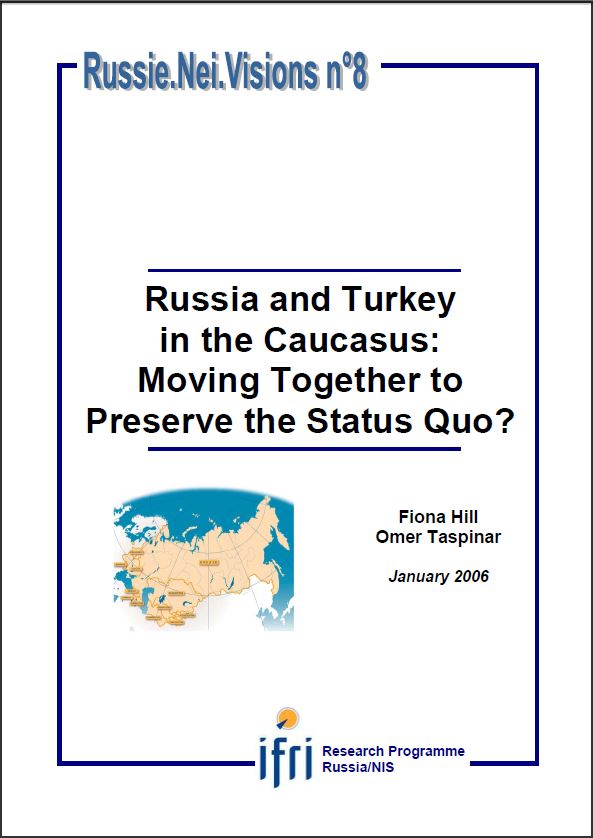Russia and Turkey in the Caucasus: Moving Together to Preserve the Status Quo?

Since 2003 and after centuries of geopolitical competition, Russia and Turkey have drawn together in a new bilateral relationship. Expanding trade has been a major driving force behind this, but shared disillusionment with United States and European policies and attitudes, as well as increasing common ground on issues in the broader Black Sea region and further afield in the Middle East, have all played a role. At this juncture, the main impact of this new relationship is in Russia and Turkey's joint border area of the South Caucasus - with potentially negative implications for the fragile state of Georgia and for the European Union's new 'Neighborhood Policy' in the region.
Download the full analysis
This page contains only a summary of our work. If you would like to have access to all the information from our research on the subject, you can download the full version in PDF format.
Russia and Turkey in the Caucasus: Moving Together to Preserve the Status Quo?
Related centers and programs
Discover our other research centers and programsFind out more
Discover all our analysesRussia's Asia Strategy: Bolstering the Eagle's Eastern Wing
Among Russia’s strategic priorities, Asia traditionally played a secondary role compared to the West. In the mid-1990s, then Foreign Minister Yevgeny Primakov initiated a rapprochement with China and India. Then, in 2014, deteriorating relations between Russia and the West prompted Moscow to begin its “great pivot to the East”.
Kazakhstan After the Double Shock of 2022: Political, Economic and Military Consequences
The year 2022 represented a dual shock for Kazakhstan. In January, the country faced its most severe political crisis since independence, followed in February by Russia’s full-scale invasion of Ukraine, which cast uncertainty over the borders of post-Soviet states. These consecutive crises profoundly shaped Kazakhstan’s domestic and foreign policy.

How the Russian Army Changed its Concept of War, 1993-2022
The traditional and high-intensity war that has occurred in Ukraine since Russia decided to invade raises a key issue: did post-soviet Russian strategic thought really prepare Russia for waging this war?
Russia's Nuclear Deterrence Put to the Test by the War in Ukraine
From the outset of its “special military operation” (SVO) against Ukraine on February 24, 2022, Russia, which possesses one of the world’s largest nuclear arsenals, has adopted aggressive deterrence measures and a resolutely menacing rhetorical stance.











